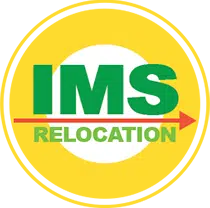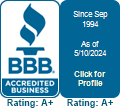Managing vs. Micromanaging Your Move
There’s a difference between a good manager and a micromanager. If you’ve worked in an office setting, you’re likely familiar with this. A micromanager actually hinders your production, overanalyzing your every move and creating more stress throughout your day. A manager, on the other hand, keeps tabs on you, but trusts you and does their best to keep you productive and empowered for the tasks at hand.
A move can be the same way, as there’s a difference between managing your move effectively and micromanaging it so much that it stresses you out and causes disruptions. Let’s cover the benefits of proper move management, some signs of micromanagement and how to find the right balance between managing and micromanaging.
Why Proper Move Management is Beneficial
Managing your move properly involves organizing and overseeing the various aspects of it without getting bogged down in unnecessary details. Doing this effectively will ensure that the important parts of the move are being addressed, from hiring a reputable moving company to packing your belongings safely and updating your address. It’s your responsibility to set the plan in motion, but delegate tasks appropriately and trust the professionals to do their jobs. This proper move management benefits you in several ways:
- It reduces the overall stress associated with moving since not as many tasks feel like they’re “on your plate.”
- It makes the move more efficient and actually helps it stay on schedule.
- It’s more cost-effective, as last-minute decisions can potentially cost money if they impact the schedule or workload.
- It protects your belongings by letting you pay closer attention to how they’re packed and moved to minimize the risk of damage.
Signs You Might Be Micromanaging Your Move
Micromanagement, on the other hand, involves excessive control and lack of trust in those you’ve hired to assist you. This approach can lead to numerous issues for everyone involved. So, how do you know whether you’re micromanaging or not? Here are some signs that you may be managing your move a bit too much:
- Over-involvement: Are you constantly checking your list of things to do? Are you spending too much time looking at details?
- Lack of delegation: Are you trying to do everything yourself? Or are you trusting your moving team and that they have the timeline under control?
- Obsessive planning: Are you focusing on the bigger picture of your move, or smaller details that don’t impact the move as a whole?
- Increased stress: Are you constantly feeling overwhelmed? Or unable to relax? Or, have you noticed increased stress in your family or with the moving team?
All of these could be symptoms of micromanagement, so take a step back on occasion and see if any of the above signs apply to you.
Tips for Finding the Right Balance
To strike the right balance between maintaining some management and ownership over your move and not getting lost in the details, there are a few things you can do. Here are some tips for achieving the proper balance when it comes to move management:
- Plan ahead: Start by creating a comprehensive moving plan well in advance. The earlier you can start, the better. Outline key tasks like finding a new home, hiring movers and buying packing supplies.
- Stay flexible: Even though you want to plan ahead, it’s important to stay flexible as well (this is one of the key differentiators to avoid micromanagement). Be prepared to adjust your plan as needed. Not everything will go perfectly and you need to be okay with that.
- Delegate tasks: If you hire a moving company (which we recommend to avoid extra stress), trust the people you hire to do the tasks you’ve hired them for. IMS Relocation, for instance, has a team of experienced movers who are experts in packing, transporting and unloading your belongings. We’ve helped thousands of families in North Texas relocate and know how to handle every aspect of your move effectively. Furthermore, by delegating tasks, it allows you to focus on other important aspects of your move.
- Set realistic expectations: Again, understand that not everything will go smoothly. There are likely going to be minor hiccups along the way. But if you set realistic expectations, stay calm and keep your composure when the unexpected happens, challenges will be much easier to navigate.
- Communicate effectively: Maintain open lines of communication with your movers and other service providers to avoid misunderstandings or delays. Clearly convey your needs and concerns, but don’t overload them with details. Trust that they have the expertise to handle the job and then be responsive if they have any questions for you.
- Prioritize self-care: Moving is stressful, so it’s crucial to take care of yourself throughout the process. A stressed person is more prone to micromanagement, so if you make time for relaxation, you’ll prevent burnout and doing too much.
In addition to these guidelines, you can also implement some practical tips to manage your move better. This includes creating a moving checklist, packing strategically, staying organized, taking advantage of additional professional services and simply anticipating the unexpected.
Finally, the right residential mover can help you keep tabs on your move more effectively. To see how IMS Relocation can be the ideal moving partner that lets you do just that, contact us for a consultation or no-obligation quote today.


